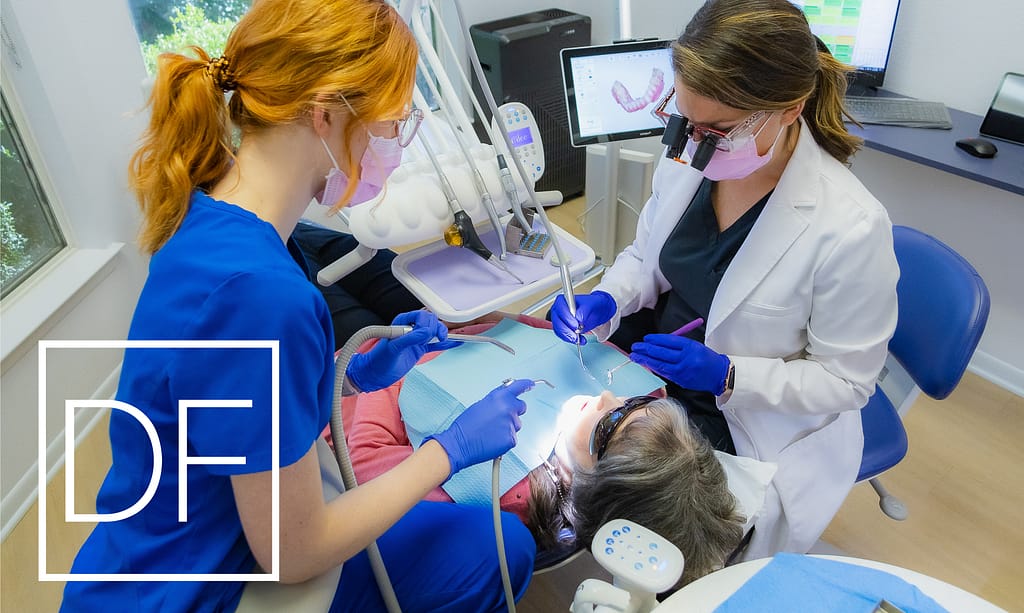How Common Is Tooth Loss, and What Is the Best Solution for It?

Just How Common Is Tooth Loss?
Tooth loss is a serious oral health concern. Having missing teeth can cause numerous dental issues, affect your ability to eat and speak naturally, and impact your self-confidence. There are many solutions available to help people with missing teeth improve their long-term oral health and lead happier lives.
Tooth loss is more common than many people realize. Most people associate tooth loss with old age. And while the rate of missing teeth certainly increases with age, the issue itself occurs across all demographics.
Around 69% of adults between 35 and 44 have lost at least one of their permanent teeth. By the age of 50, the average American has lost 12 teeth. While this statistic includes wisdom teeth removal, it still shows how prevalent tooth loss is today.
The age at which someone may start to lose their teeth depends on many factors. In fact, there’s no set age at which you can start losing teeth. Without proper care, you can lose teeth to decay and disease at any age. One of the most well-known denture wearers in history, George Washington, started losing his teeth at just 22.
Finding the Right Solution for Your Unique Needs
While tooth loss is prevalent, there are a variety of solutions available to restore the look, function, and health of patients’ smiles. Finding the right solution for your needs will require a consultation with your dentist to identify the course of treatment that will give you the best results.
Dental Implants
Dental implants are among the latest innovations in dental technology. This versatile treatment is considered the best restorative option in almost all situations. Dental implants provide excellent performance and longevity by relying on the jawbone for a solid foundation.
The implant itself is a titanium screw that a dentist or oral surgeon places in the jawbone. That implant can then support a dental crown, or multiple implants can be used to replace a full smile with implant-supported dentures.
This strong foundation provides exceptional stability and bite strength. It also delivers long-term health benefits. Natural tooth roots stimulate the jawbone, keeping it strong and healthy. When you have missing teeth, the jawbone lacks that stimulation and can deteriorate. Dental implants act similarly to natural tooth roots to help prevent this.
Dental implants make a significant difference in individuals missing most or all of their teeth. Over time, jawbone deterioration affects your facial aesthetics, resulting in the distinct sunken-jaw appearance common in the elderly who have lived without teeth for decades. Dental implants stop this process to maintain jawbone integrity.
However, dental implants aren’t always the right option. Because they rely on the jawbone for support, you need a strong, healthy, and large enough jawbone. Patients who have already experienced jawbone deterioration, have other conditions, or happen to have a small jawbone may not be able to have dental implants without additional surgery.
Dental Bridges
Dental bridges are another common option for replacing individual missing teeth. If you lose a tooth that’s between two healthy teeth, a dental bridge can span the gap between them to restore your smile.
To place a dental bridge, the dentist trims away some of the tooth structure on the two surrounding teeth. The dental bridge then covers those two teeth, attaching strongly with dental cement. The row of replacement teeth presents a natural appearance and resolves any biting or chewing difficulties.
Dental bridges also help support long-term oral health. When a tooth is missing, surrounding teeth can shift into the gap, creating orthodontic issues. A dental bridge prevents this shift from happening.
Traditional Dentures
In cases where dental implants aren’t a suitable solution, traditional dentures can still significantly improve quality of life. Patients who have insufficient bone mass, high infection risk, or other conditions can rely on traditional dentures to improve their ability to confidently eat, speak, and lead their lives, even without dental implants.
Traditional dentures are much better than simply living with missing teeth. While you won’t have your full natural bite force, dentures greatly improve both biting and chewing function. Speaking is also more natural and clear. You’ll have a full smile as well, although other solutions, such as dental implants, may look more natural.
The primary concern around traditional dentures is that they do not stop jawbone deterioration like dental implants do. For this reason, dentists and oral surgeons often perform bone grafting to provide dental implants to as many candidates as possible.
Improve the look, function, and health of your smile.
If you have missing teeth or need extractions, you can visit your Bedford dentist to find out more about your options. Davis Family Dental Care provides options such as dental implants, bridges, and dentures to restore your smile and improve your quality of life. Schedule your appointment today to get started.
